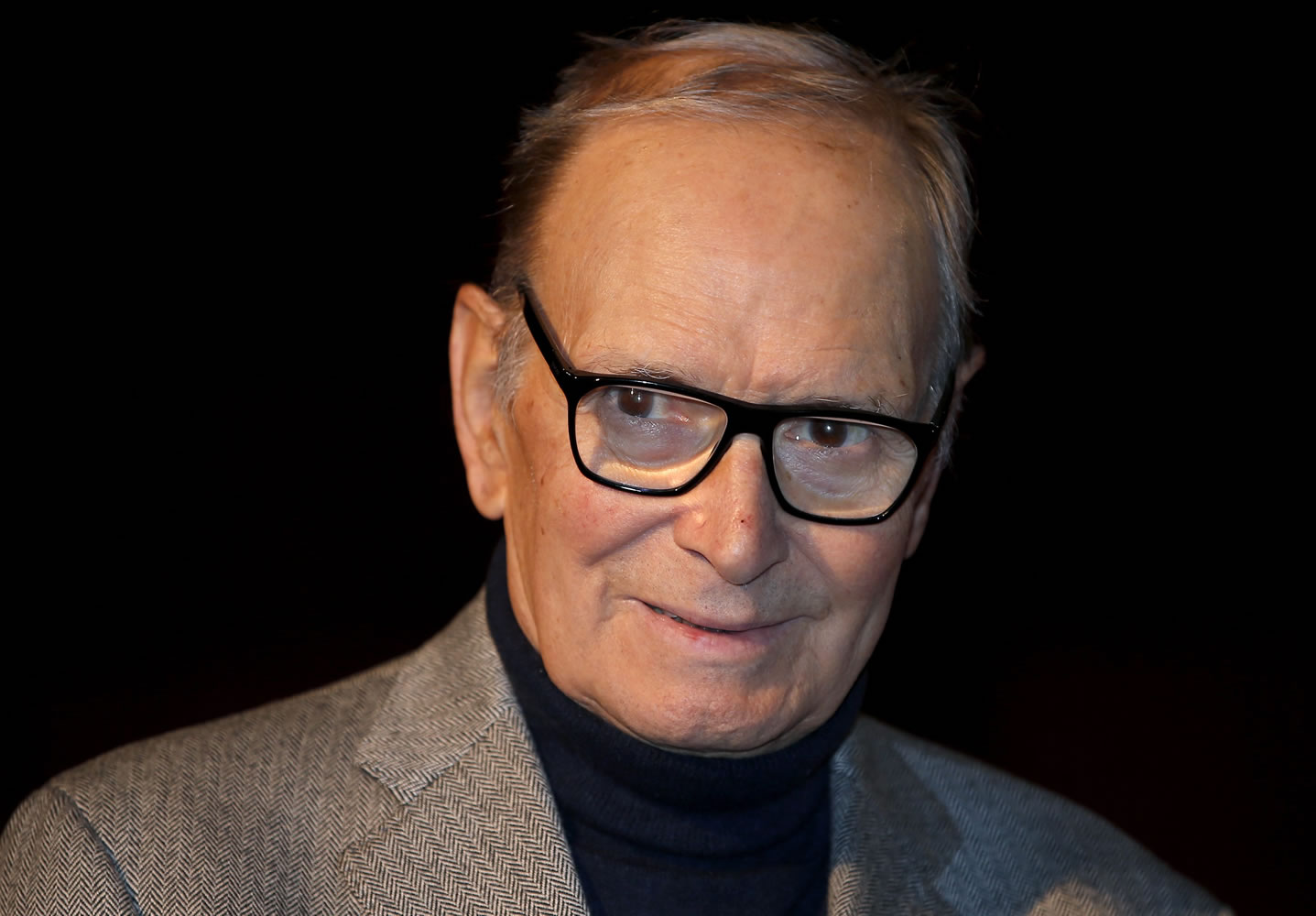NEW YORK — All Ennio Morricone asked of Quentin Tarantino, after committing to score his new Western, “The Hateful Eight,” was that the director feature his music prominently and give it the space needed to convey its message.
Given how Tarantino feels about the award-winning composer, he hardly needed to ask.
“Ennio Morricone, as far as I am concerned, is my favorite composer,” Tarantino said onstage Jan. 17 as he accepted the 87-year-old Morricone’s third Golden Globe Award for best original score. “When I say ‘favorite composer,’ I don’t mean movie composer. … I’m talking about Mozart, I’m talking about Beethoven, I’m talking about Schubert.”
Getting Morricone to score “The Hateful Eight” was a coup for Tarantino, who tried before to get a soundtrack out of the prolific Italian composer. Some of Tarantino’s films, like “Kill Bill: Vol. 2” and “Django Unchained,” have featured existing music that Morricone originally composed for movies directed by Sergio Corbucci, Don Siegel and Sergio Leone in the 1960s.
Morricone’s music played a central role in the cinematic experience of Leone spaghetti Westerns like “The Good, the Bad and the Ugly” and “A Fistful of Dollars,” and it’s similarly front-and-center in “The Hateful Eight,” which also earned Morricone an Oscar nomination. In Tarantino’s hands, Morricone’s music gets a starring role, serving as a narrator that helps move the story along, foreshadowing coming plot twists and accentuating the building suspense.



